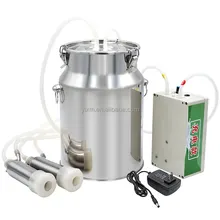Efficient Solutions for Mixing Animal Feed and Enhancing Nutritional Value
Nov . 09, 2024 00:52 Back to list
Efficient Solutions for Mixing Animal Feed and Enhancing Nutritional Value
Understanding Animal Feed Mixers Essential Tools for Optimal Livestock Nutrition
In the realm of livestock management, animal feed mixes play a pivotal role in achieving healthy and productive animals. An essential tool for this purpose is the animal feed mixer. This equipment is critical for creating balanced, nutritious feed that meets the dietary needs of various livestock species. In this article, we will explore the importance of animal feed mixers, their types, benefits, and considerations for their effective use.
The Importance of Animal Feed Mixers
Animal feed mixers facilitate the creation of uniform feed combinations that ensure livestock receives consistent nutrients. This uniformity is crucial for the overall health and growth of farm animals. Whether it’s cattle, poultry, sheep, or pigs, each species has distinct nutritional requirements. Animal feed mixers allow farmers and feed manufacturers to blend different feed components, such as grains, vitamins, minerals, and protein sources, to create tailored diets for specific types of livestock.
Types of Animal Feed Mixers
Animal feed mixers come in various types, each designed for specific mixing tasks and capacities. Here are some common types
1. Horizontal Mixers These mixers use a horizontal mixing chamber to blend feed ingredients thoroughly. They are commonly used for larger batches and can handle a variety of feed types, making them versatile tools in feed production.
2. Vertical Mixers Characterized by a vertical mixing chamber, these mixers are well-suited for smaller farms or operations that require quick and efficient mixing. They are compact and easy to operate, allowing farmers to save time and labor costs.
3. Batch Feed Mixers These mixers are designed to combine specific quantities of feed ingredients in batches. They offer precision in formulation and are ideal for farms with varying feed requirements.
4. Continuous Mixers As the name suggests, these mixers continuously blend ingredients as they enter the mixing chamber. They are ideal for large-scale operations where a steady supply of mixed feed is necessary.
5. Mobile Mixers Equipped with wheels, mobile mixers can be easily transported between different locations on a farm. This flexibility is particularly useful for operations with multiple feeding sites.
Benefits of Using Animal Feed Mixers
1. Nutritional Consistency By using a feed mixer, farmers can ensure that every portion of feed is evenly mixed, providing animals with consistent nutrition at every meal.
animal feed mixer

2. Cost-Efficiency Mixing feed in-house can significantly reduce feed costs. By purchasing raw ingredients in bulk, farmers can save money compared to buying pre-mixed feed.
3. Customization Different animals and life stages require different nutrients. Feed mixers enable farmers to customize feed formulations tailored to the specific needs of their livestock, enhancing growth and productivity.
4. Reduced Waste Properly mixed feed minimizes waste by ensuring that animals consume the entire portion without leaving behind unpalatable components.
5. Time-Saving Modern animal feed mixers are designed for speed and efficiency, allowing farmers to spend less time mixing and more time focusing on other essential farm activities.
Considerations for Effective Use
To maximize the benefits of animal feed mixers, several factors should be considered
- Quality of Ingredients Always use high-quality ingredients to ensure that the mixed feed is nutritious and safe for animal consumption.
- Cleanliness Regularly clean the mixer to prevent cross-contamination between different feed types, which can lead to nutritional imbalances.
- Training Ensure that the staff operating the mixers are adequately trained to understand the importance of proper mixing techniques and maintenance procedures.
- Maintenance Regularly check and maintain the mixer to ensure optimal performance and longevity of the equipment.
Conclusion
Animal feed mixers are indispensable tools in modern livestock management, enabling farmers to create customized, nutritious feed efficiently. With various types available and the clear benefits they offer, investing in a quality feed mixer can lead to healthier animals, improved productivity, and ultimately, a more profitable farming operation. By understanding how to utilize these machines effectively, livestock owners can ensure they meet the dietary needs of their animals, laying the groundwork for sustainable agricultural practices.
-
Automatic Feeding Line System-Pan Feeder Nipple Drinker|Anping County Yize Metal Products Co., Ltd.
NewsJul.29,2025
-
Hot Sale 24 & 18 Door Rabbit Cages - Premium Breeding Solutions
NewsJul.25,2025
-
Automatic Feeding Line System Pan Feeder Nipple Drinker - Anping County Yize Metal Products Co., Ltd.
NewsJul.21,2025
-
Automatic Feeding Line System Pan Feeder Nipple Drinker - Anping County Yize Metal Products Co., Ltd.
NewsJul.21,2025
-
Automatic Feeding Line System - Anping Yize | Precision & Nipple
NewsJul.21,2025
-
Automatic Feeding Line System - Anping Yize | Precision & Nipple
NewsJul.21,2025






